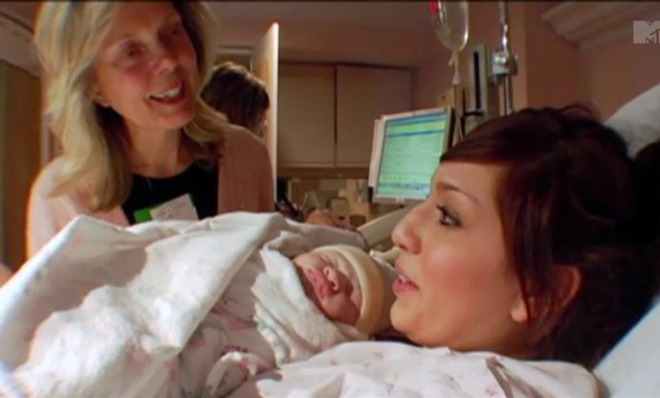Fewer kids are having kids
But let's not rest on our laurels

A free daily email with the biggest news stories of the day – and the best features from TheWeek.com
You are now subscribed
Your newsletter sign-up was successful
The U.S. teen pregnancy rate has dropped to "historic lows," said the Centers for Disease Control and Prevention last week. Since peaking in 1991, the number of pregnant teens per thousand has dropped 39 percent.
Though this is widely viewed as good news, it may be too soon for all the "kids are all right" comments. The per capita teen pregnancy rate in the U.S. is still higher than in any other developed nation — twice as high as the U.K., which has the highest rate in Europe, and three times higher than Canada.
A lot of academic research has focused on the why of it. Most agree that sex education plays an important role in reducing teen pregnancies, but researchers differ about its importance. Some say poverty is the real cause of teen pregnancy; to them, sex education should play a supporting role to policies designed to expand economic opportunities. Others say teen pregnancies themselves lead to poverty, and that sex education should play a central role. The contrasting takes produce different approaches to public policy.
The Week
Escape your echo chamber. Get the facts behind the news, plus analysis from multiple perspectives.

Sign up for The Week's Free Newsletters
From our morning news briefing to a weekly Good News Newsletter, get the best of The Week delivered directly to your inbox.
From our morning news briefing to a weekly Good News Newsletter, get the best of The Week delivered directly to your inbox.
First, there's the argument that says teen pregnancies lead to poverty. The data sounds compelling: Thirty-four percent of young teen mothers do not go on to graduate high school, and less than two percent of teen mothers earn a college diploma by the time they turn 30, said the National Campaign to Prevent Teen and Unplanned Pregnancy in a 2012 report. The idea is that pregnancy slows down education, which slows down job skill development, which, in turn, drags down the mother's earning capacity. The ripple effect can really add up.
To fight teen pregnancy from this angle, experts recommend robust sex education in school, and easy, cheap access to contraceptives. The CDC study bears this out to a certain degree, citing data showing "a continuation of a long-term downward trend in the percentage of teenagers who are sexually experienced, and a long-term upward trend in the use of contraception at first sex" as evidence for the decline in teen pregnancies.
The other camp, however, says we have to do more.
Many pregnant teens were off the road to prosperity well before conception, says a paper from the National Bureau of Economic Research. The researchers — Melissa Kearney, an economist at the University of Maryland, and Phillip B. Levine, an economist at Wellesley College — point out that women are more likely to give birth at a young age if they come from disadvantaged backgrounds, and even more so if they live in communities with a wide income gap. In fact, they find that teen pregnancy in the U.S. is pretty closely correlated to income inequality.
A free daily email with the biggest news stories of the day – and the best features from TheWeek.com
This may have to do with how girls in these communities perceive their economic situation, say Levine and Kearny. "[O]ur findings seem to suggest that girls who don't see a chance to better their lives are more likely to have a child," they wrote in The Atlantic earlier this year.
This camp would like to see teen pregnancy policy focus more on giving disadvantaged young women more opportunities for upward mobility. Though access to contraceptives is important, "To really drive down rates of teen childbearing, we need young women at risk of becoming teen mothers to see a reason to delay motherhood. They need to believe that they have reason to invest in their futures, and they need a viable way to do so," they write.
Of course, this angle leads to its own questions. For example, why has the teen pregnancy rate slid over the last two decades, while economic inequality has grown?
For now, it looks like more kids are all right — but there's still a ways to go.
Carmel Lobello is the business editor at TheWeek.com. Previously, she was an editor at DeathandTaxesMag.com.


